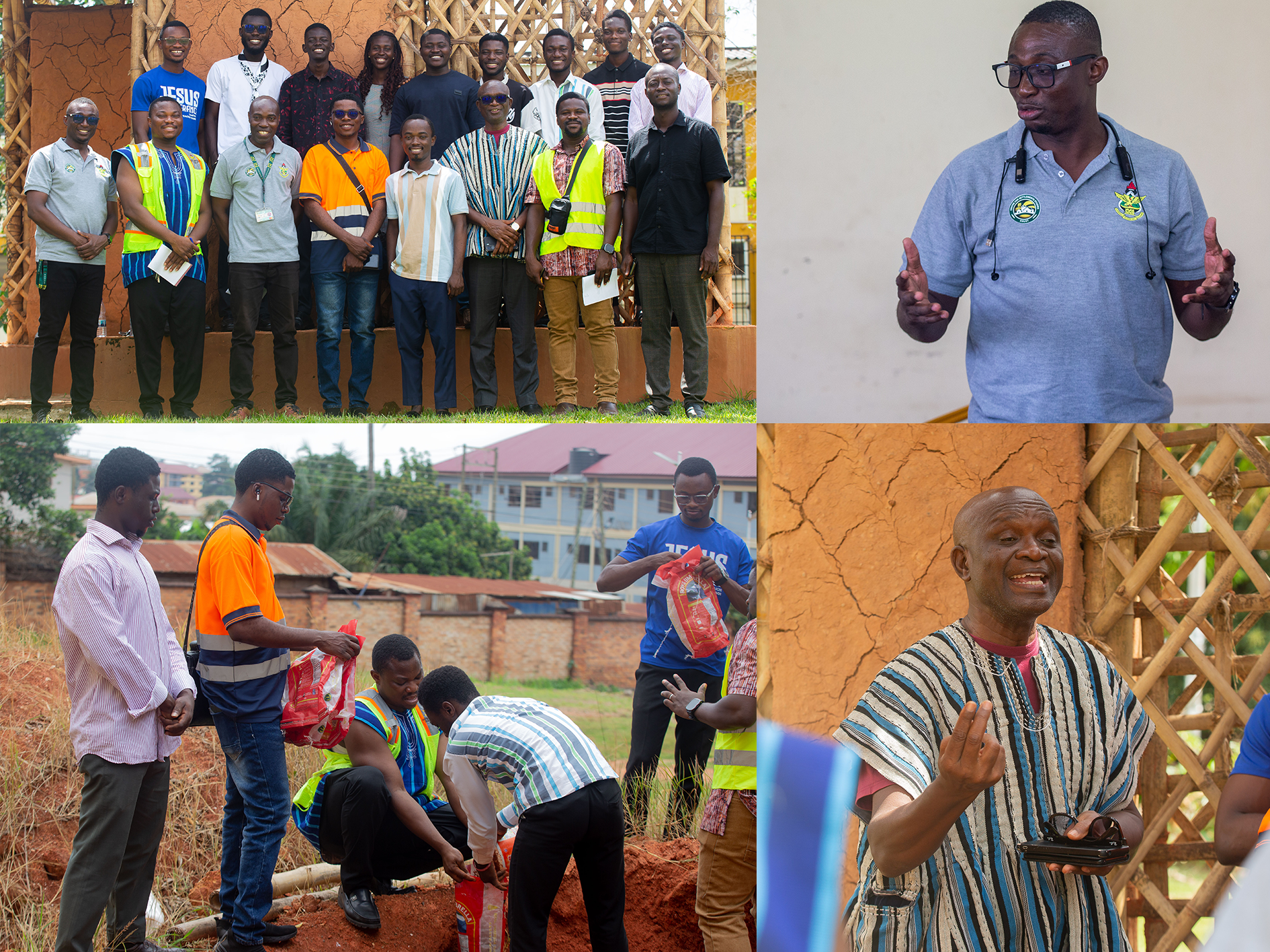The Centre for Settlement Studies (CSS) at the Kwame Nkrumah University of Science and Technology (KNUST) has completed two professional short courses aimed at equipping the built-environment sector with critical skills for climate adaptation and low-carbon building.
The training sessions, held in October and November, brought together a diverse group of stakeholders, including environmental workers, consultants, development officers, researchers, and construction professionals.
Focus on climate-smart urban adaptation
The first course, "Climate-Smart Urban Adaptation," (October 9–17) focused on how cities can implement policy and practice to effectively respond to increasing climate risks.
Lead facilitator Dr. Henry Mensah, a Senior Research Fellow at CSS, stressed the urgency of the matter to participants. "Climate adaptation has become a basic requirement for cities," he stated, noting that recurrent floods, heat events, and pressure on infrastructure indicate action cannot be delayed.
Dr. Mensah pointed out that while many cities now have adaptation plans, the sector often lacks the professionals with the necessary skills to implement these plans on the ground.
The course covered key modules, including the use of nature-based solutions, technological planning tools like GIS and risk-mapping systems, and policy processes. Participants explored the use of wetlands, green roofs, and permeable pavements for urban protection.
Dr. Mensah emphasized that nature-based options "are not decoration but working systems that reduce harm and long-term costs," and called for inclusive planning that prioritizes highly exposed communities.
Addressing construction's carbon footprint
The second course, "Evidence-Based Low-Carbon Construction Materials," (October 29–November 7) targeted construction workers, architects, and consultants, focusing on the selection, testing, and practical application of materials that reduce the construction sector's carbon emissions.
Senior Research Fellow Dr. Eric Kwame Simpeh, who led the course, highlighted the global and national impact of the industry.
He cited International Energy Agency data showing that construction accounts for about 37% of global carbon emissions, while Ghana’s building sector uses approximately 43% of the country’s energy.
Dr. Simpeh argued that adopting low-carbon materials can significantly cut energy use, reduce lifetime building costs, and create new job opportunities within the sector.
The course curriculum included classifying local materials, performing cost-benefit analyses, hands-on production of selected materials, and practical construction methods.
Participants studied case examples from various projects in South Africa, Burkina Faso, and Ghana, including KNUST’s RENABUMA project.
The CSS stated that both courses form part of its broader mandate to build capacity in climate-related professional skills.
The Centre aims to support a decisive shift toward urban systems and construction methods that simultaneously reduce risks and carbon output, while strengthening the crucial link between academic research, governmental policy, and field practice.
Story by: Michael Kwasi Anderson

















